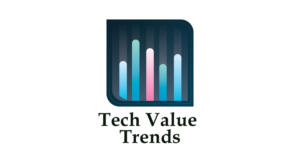In the modern digital-first world of business, organizations are dealing with more data than ever before. With tighter controls on data privacy and growing cybersecurity risks, businesses need to exercise judicious choices regarding where and how their data is stored. This is where the vision of the sovereign cloud comes into play. In contrast to common public cloud infrastructure, sovereign cloud guarantees that data would be stored, processed, and regulated solely within the confines of a given country, subject to local laws and policies.
To companies that work in highly regulated industries like finance, healthcare, government, or manufacturing, having the right sovereign cloud providers may be the difference between perfect compliance and running into legal or reputational risks. With numerous vendors out there, however, how do enterprises select the right provider?
Here are the key factors to consider in making your selection.
Data Residency and Compliance
One of the most critical aspects of a sovereign cloud is data residency. Ensure the provider guarantees that your data will be stored and processed within the designated country. This is especially important if your organization must comply with laws such as GDPR, India’s DPDP Act, or other data localization mandates. The provider should also have clear compliance certifications that demonstrate their commitment to meeting regional and industry-specific regulatory requirements.
Security Standards
A sovereign cloud should offer security beyond the basics. Look for providers that offer enterprise-grade encryption (both at rest and in transit), strong identity and access management, and round-the-clock monitoring for threats. Multi-factor authentication, zero-trust architecture, and compliance with standards such as ISO 27001 or SOC 2 can give you confidence that your sensitive information is protected.
Transparency and Control
One major reason businesses choose sovereign cloud over public cloud solutions is the ability to maintain greater control over their data. The provider should give you complete visibility into where data resides, who can access it, and how it is processed. Transparent reporting tools and easy-to-use dashboards can help your IT team monitor usage and detect anomalies quickly.
Scalability and Performance
Your cloud requirements will evolve as your business grows. Choose a provider that offers scalable infrastructure without compromising performance. Whether you need to scale up during peak demand or scale down to optimize costs, the provider should deliver consistent availability and low latency for a seamless user experience.
Disaster Recovery and Business Continuity
Data security isn’t just about preventing unauthorized access — it’s also about ensuring business continuity in case of outages, natural disasters, or cyberattacks. A robust sovereign cloud solution should include built-in disaster recovery options and multiple availability zones to guarantee uptime and data durability.
Vendor Support and Expertise
Technical support can make or break your cloud experience. Look for a provider that offers 24/7 support with quick response times, along with expert consultation to guide your cloud strategy. A vendor with strong local expertise will better understand regulatory requirements and business challenges in your region.
Cost Transparency
Cloud adoption should be cost-efficient. The right provider will offer a clear pricing model with no hidden charges. Look for flexible payment options, such as pay-as-you-go or reserved instances, so you can align costs with usage patterns and business objectives.
Why Utho Stands Out
When it comes to selecting a reliable cloud platform, Utho cloud has emerged as a trusted choice for enterprises seeking secure, compliant, and scalable solutions. Utho focuses on building high-performance infrastructure that adheres to regional regulations while offering flexibility for businesses of all sizes. With strong security measures, transparent cost structures, and expert technical support, Utho enables organizations to confidently adopt cloud technology without compromising data sovereignty or compliance.
Conclusion
Choosing the right sovereign cloud partner is no longer optional – it’s a strategic decision that affects security, compliance, and long-term business growth. By evaluating factors such as compliance readiness, security posture, scalability, and support, enterprises can select a provider that aligns with their regulatory and operational needs. The right choice will not only safeguard sensitive data but also position the organization for innovation and resilience in an increasingly regulated digital world.

